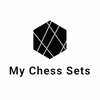Introduction to Chess and Checkers
Chess and checkers are two of the most widely played board games across the globe. Both games are played on a square board and involve strategies of attack and defense. Despite these similarities, chess and checkers cater to different skill sets, rules, and historical backgrounds, offering unique challenges to their players.
Historical Background
History of Chess
Chess originated around the 6th century AD in India, where it was known as Chaturanga. Over the centuries, it spread through Persia, reached the Arab world, and eventually made its way to Europe where it evolved into the modern game known today. Chess has a deep historical imprint, influenced by the various cultures that adapted its play.
History of Checkers
Checkers, also known as draughts, boasts equally ancient roots, dating back to the 12th century in France. It possibly originated from the game of Alquerque, which itself dates back to ancient Egypt. Checkers evolved significantly as it spread throughout Europe and later to America.
Rules and Gameplay
Chess
The game of chess is played on an 8x8 square board with 32 pieces (16 for each player) including the king, queen, rooks, bishops, knights, and pawns, each moving in specific patterns. The objective is to checkmate the opponent's king, meaning the king is put into a position to be captured (check) from which there is no escape. Chess is a complex game that involves several strategic and tactical elements.
Checkers
Checkers is played on the same 8x8 board as chess, but only uses 24 pieces, 12 for each player. The pieces move diagonally and can only move forward until they are kinged which then allows them to move both forward and backward. Capturing the opponent's pieces by jumping over them is a key component of the game. The goal in checkers is to capture all the opponent’s pieces or block them so that they cannot make a move.
Strategic Complexity
Chess Strategy
Chess demands extensive strategic planning and foresight. Players must consider various factors like the position of pieces, control of the center board, King safety, and pawn structure. Each piece has its own strengths and strategies, from the powerful queen to the versatile knights, making the game deeply complex and often unpredictable.
Checkers Strategy
While seemingly simpler than chess, checkers still requires strategic foresight. The game focuses more on positional play and the forced capture rule can compel a player into a disadvantageous trade. Advanced players often use this rule to set up scenarios where sacrificing a piece results in a strategically advantageous position.
Psychological and Educational Aspects
Both games are excellent tools for developing various mental skills. Chess has been associated with higher cognitive abilities, problem-solving skills, and even creativity. It is often used in educational contexts to help develop and enhance a student's ability to think abstractly and strategically. Checkers, while less complex, is beneficial in developing concentration and planning skills. Both games teach patience and the importance of thinking ahead, making them valuable educational tools for players of all ages.
Popularity and Cultural Impact
Chess and checkers are deep-seated in global culture, featuring in numerous competitions, books, movies, and more. Chess tournaments like the World Chess Championship offer grandeur and intense competition, attracting global attention. Conversely, checkers maintains a strong grassroots presence, emphasized by local clubs and informal competitions. Both games have adapted to the digital era, available in online formats, thus expanding their reach and influence even further.
Conclusion
While both chess and checkers are engaging, the choice of game can depend on what the player is looking to gain. Chess offers a deep, strategic experience with complex rules and endless possibilities, suitable for someone seeking a mentally challenging ordeal. Checkers, providing quicker and somewhat simpler gameplay, offers its own strategic satisfaction and can be just as competitive. Both games stand as testaments to the intrigue and pleasure board games continue to offer, demonstrating that they are much more than mere pastimes—they are meaningful activities that enrich our minds and cultures.
Explore our large collection of luxurious chess sets!